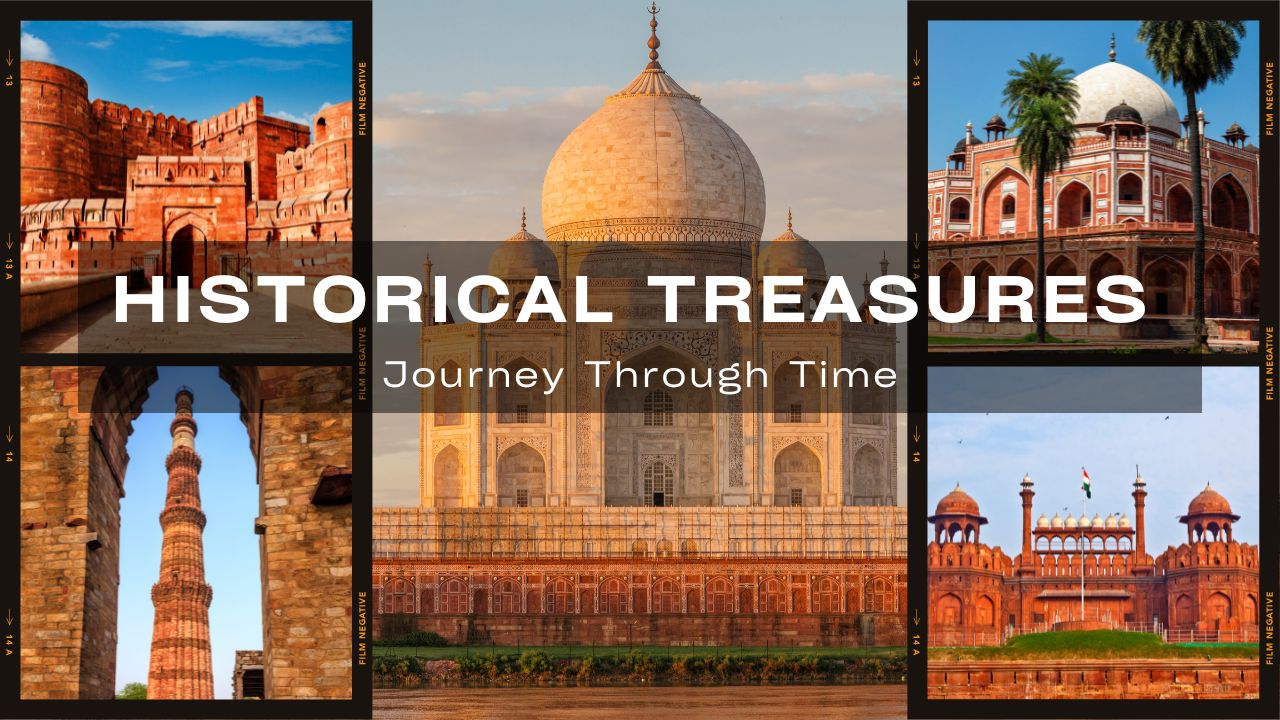India's historical monuments stand as silent witnesses to centuries of cultural evolution, architectural brilliance, and human ingenuity. These structures not only showcase the country's rich heritage but also tell stories of the people, cultures, and civilizations that shaped the Indian subcontinent.
Ancient Marvels
Notable ancient monuments:
- Ajanta and Ellora Caves
- Konark Sun Temple
- Khajuraho Temples
- Hampi Ruins
- Sanchi Stupa
"Each stone in these monuments carries the weight of history, the artistry of craftsmen, and the aspirations of civilizations long gone."
Architectural Styles
Diverse architectural traditions:
- Dravidian architecture
- Indo-Islamic style
- Mughal architecture
- Colonial buildings
- Rock-cut architecture
UNESCO World Heritage Sites
Recognized cultural treasures:
- Taj Mahal
- Qutub Minar
- Red Fort
- Fatehpur Sikri
- Hampi Group of Monuments
Conservation Efforts
Preservation initiatives:
- Archaeological Survey of India
- Heritage conservation projects
- Digital documentation
- Restoration techniques
- Community involvement
Cultural Significance
Monuments as cultural symbols:
- Religious importance
- Historical narratives
- Artistic heritage
- Social history
- Cultural identity
Architectural Innovation
Engineering marvels:
- Ancient water systems
- Seismic-resistant structures
- Natural cooling techniques
- Advanced masonry
- Astronomical alignments
Tourism and Education
Role in modern India:
- Heritage tourism
- Educational programs
- Cultural awareness
- Economic impact
- Digital experiences
Challenges and Solutions
Preservation challenges:
- Environmental threats
- Urban development
- Tourism pressure
- Maintenance costs
- Climate change impact
Future of Heritage
Sustaining our legacy:
- Digital preservation
- Community engagement
- Sustainable tourism
- Innovative conservation
- Youth involvement
Conclusion
India's historical monuments are more than just architectural wonders; they are living repositories of our collective memory and cultural identity. Their preservation and understanding are crucial for future generations to connect with their heritage.
As we move forward, balancing conservation with modern needs, these monuments continue to inspire and educate, reminding us of the rich tapestry of India's history and the importance of preserving our cultural legacy.

